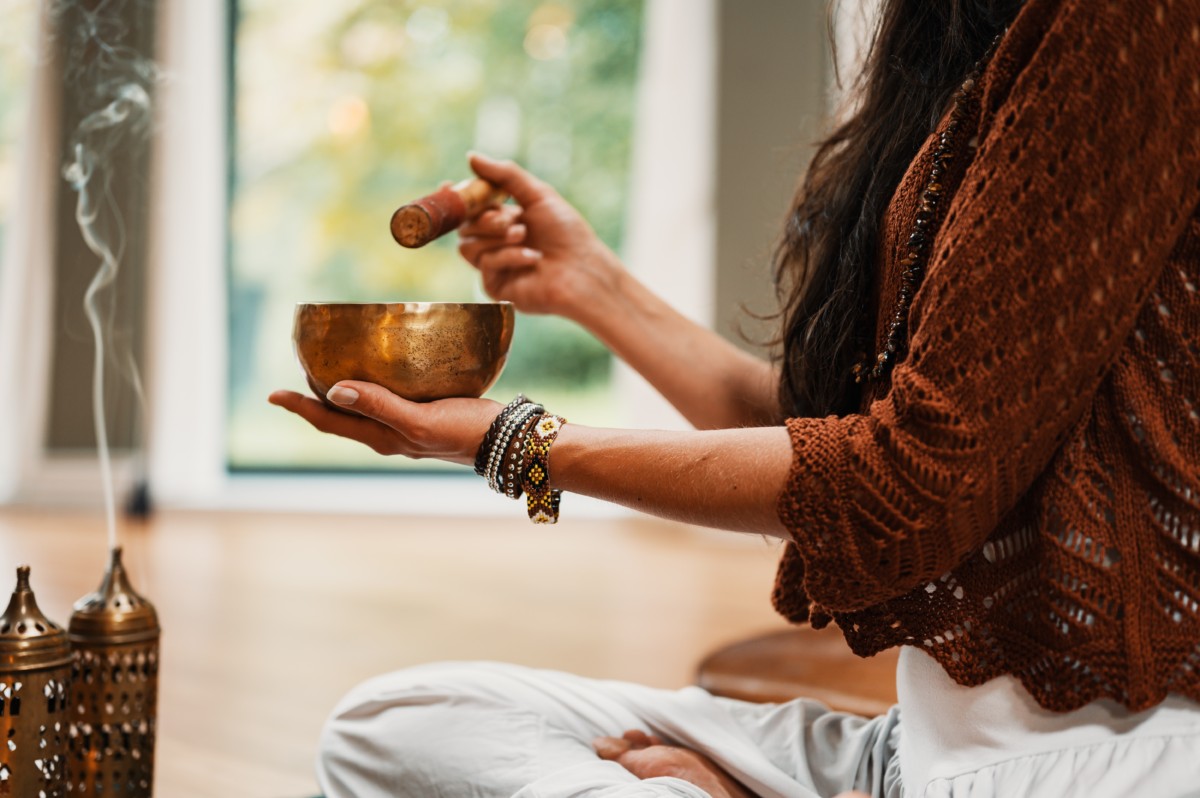Soft living is a lifestyle philosophy that emphasizes simplicity, mindfulness, and intentionality. It offers an alternative to the fast-paced, overstimulated world that many of us find ourselves stuck in. Soft living encourages us to slow down, simplify our lives, and cultivate deeper connections with ourselves, our lives and others beings.
Soft living is a lifestyle choice that emphasizes comfort, relaxation, and pleasure as opposed to the hustle and bustle of modern life. It’s a way of living that prioritizes self-care, quality over quantity, and a sense of balance. Soft living isn’t just about enjoying life’s pleasures; it’s also about minimizing stress and promoting overall well-being. To get started on living soft, there are several steps you can take. These include cultivating a mindfulness practice, minimizing distractions like social media and technology, adopting a minimalist and essentialist approach to life, embodying your true authentic self, and prioritizing self-care practices like yoga and meditation. Other important aspects of soft living include slow travel, sustainable living, buying locally, creating a peaceful environment at home, and being your authentic self and showing kindness and love to all people and nature.
Living a soft lifestyle can have a range of benefits, including reduced stress, improved creativity and focus, increased life satisfaction, better health, and deeper and more meaningful relationships with ourselves and others. When we recognize the consequences of a stressful hustling life, and start to embrace soft living practices, we can cultivate greater balance, well-being, and fulfillment in our lives.

Benefits of soft living
The benefits of soft living are numerous, and they extend beyond just feeling good in the moment.
1. Reduce stress and anxiety
For starters, soft living helps reduce stress. When we’re always on the go and pushing ourselves to the limit, we can become overwhelmed, anxious, and burned out. Soft living encourages us to slow down, take breaks, and prioritize relaxation. By doing so, we give our bodies and minds the opportunity to rest and recover, which can help us manage stress and anxiety more effectively.
2. Improve overall well-being
In addition, soft living can help improve our overall well-being. When we take better care of ourselves in a holistic way, we’re better equipped to handle life’s challenges. Soft living can improve our mental health, physical health, and emotional health, which can lead to greater overall happiness and satisfaction. We will dive more into that in the step-by-step section below.
3. Mindfullness
Another benefit of soft living is that it can help us be more present and mindful. When we’re constantly rushing from one thing to the next, we can become disconnected from the present moment. Soft living encourages us to slow down and savor life’s simple pleasures, which can help us feel more connected and grounded to both life and our loved ones.
4. Staying grounded – free from the hustle & screens
Living slowly, breaking free of the hustle, and spending less time on social media and our phones are all crucial elements of a soft living practice. In our fast-paced and hyper-connected world, it’s all too easy to get caught up in the hustle and bustle of daily life, constantly striving to do more, achieve more, and be more. We often find ourselves rushing from one task to the next, multitasking and cramming as much as we can into every moment. Meanwhile, our phones and social media feeds are constantly demanding our attention, leaving us feeling distracted, disconnected, and overwhelmed.
But when we live slowly, we break free of this cycle of busyness and distraction. We create space to be present in the moment, to savor life’s simple pleasures, and to connect more deeply with ourselves and the world around us. We learn to prioritize what truly matters to us, and let go of the rest. And we cultivate a sense of inner calm and balance that allows us to navigate life’s ups and downs with greater ease and resilience. By taking breaks from our screens and disconnecting from the constant stream of information, we create space to rest, reflect, and recharge. We also give ourselves the opportunity to connect more fully with the people and experiences in our immediate environment, rather than constantly being pulled away by notifications and alerts.

Soft living vs. Slow living vs. Intentional living
While soft living, slow living and intentional living share a lot of similarities, they’re not exactly the same thing. Slow living is a broader movement that emphasizes simplicity, sustainability, and a slower pace of life. It’s about living with more intention, minimizing distractions, and focusing on what truly matters.
Soft living, on the other hand, is more focused on comfort and pleasure. While soft living can certainly involve slowing down and simplifying, it’s not necessarily about doing so for the sake of sustainability or intentional living.
Intentional living emphasizes being purposeful and deliberate in one’s actions and decisions, and aligning one’s actions with one’s values and goals. It involves being conscious and mindful of one’s choices, and prioritizing what truly matters in life.
While intentional living, soft living, and slow living are all valuable lifestyle approaches, where all of them share a focus on mindfulness and intention, it’s important not to get too hung up on labels. Rather than focusing on the specific name of the lifestyle philosophy you want to adopt or following a trend, it’s more important to focus on the benefits you hope to achieve and how you want to live a more simple, meaningful, and happy life.
Create a customized lifestyle that works best for you. Then you allow yourself to prioritize the practices and habits that will have the most significant impact on your life and well-being, while also allowing for flexibility and adaptation as your needs and circumstances change over time. Ultimately, the goal of intentional, soft, or slow living is to live a more fulfilled and contented life.
In this blogpost I will mix them up a little bit to create what I believe is the ultimate soft living experience, but feel free to call it whatever you’d like.

How to get started on soft living with 5 easy steps
1. Prioritize yourself & build authenticity
- Take care of yourself. Whether it’s getting enough sleep, eating well, or getting some intuitive movement into your body, prioritize your own well-being above all else. At the end of the day, your body and the well-being of it is the only thing you’ll truly have.
- Make self-care a priority. Prioritize rest, relaxation & recreational activities. Make time for this every day. Whether it’s taking a bath, reading a book, diving into a hobby, or simply sitting outside and enjoying nature, find ways to slow down and give your body and mind a break.
- Be your authentic self, and be kind and loving to all people and nature. At the heart of soft living is a commitment to living with authenticity, kindness, and love. This means being true to yourself and your values, while also showing compassion and respect to all people and the natural world. To cultivate this mindset, practice self-awareness, self-acceptance, and self-love. Listen to your inner voice and honor your needs and desires, while also being mindful of the impact that your actions have on others and the environment. When interacting with others, strive to approach them with an open heart and a spirit of kindness and generosity. Look for opportunities to serve others and give back to your community and Mother Earth.
- Cultivate a sense of purpose. Having a sense of purpose can help give meaning and direction to our lives. It can also help us feel more fulfilled and satisfied with our daily routines. Take time to reflect on your values, passions, and goals, and consider how you can incorporate these into your daily life. Whether it’s volunteering, pursuing a new passion, or starting a new career/business, find ways to live a life that feels meaningful and purposeful to you.
2. Enhance the good stuff
- Savor life’s simple pleasures. Find joy in the simple things in life. Maybe it’s a cup of chai in the morning or a walk in the park. Maybe it’s cuddles with your dog, your partner or a friend. Savor these moments and enjoy them fully.
- Practice mindfulness. Mindfulness is the practice of being fully present and engaged in the current moment, without judgment or distraction. Incorporate mindfulness into your daily routine, whether it’s through meditation, deep breathing, or simply paying attention to your surroundings. By practicing mindfulness, you can cultivate a greater sense of peace and contentment in your daily life.
- Practice gratitude. Cultivate a sense of gratitude for the things you have in your life, rather than focusing on what you lack. Gratitude can help you feel more content and satisfied, and can help you appreciate life’s simple pleasures more fully.
- Connect with others. Soft living isn’t just about taking care of yourself; it’s also about building meaningful connections with others. Make time for loved ones, whether it’s having a conversation over dinner or going for a walk together. Build a community of people who support and uplift you. Prioritize to assess and let go of relationships that no longer serve you.
- Spend time in nature. Spending time in nature has been shown to have numerous benefits for our mental and physical health. It can help reduce stress, improve mood, and increase feelings of well-being. Make time to spend outdoors each day, whether it’s going for a walk in the park, sitting in your backyard, or hiking in the mountains. Take in the sights, sounds, and smells of nature, and allow yourself to be fully present in the moment. Also, ever heard of Earthing/Grounding? The science on this is next level soft living!

3. Step away from the huslte and bustle
- Social media can be a major source of stress and distraction, and can take up a significant amount of our time and energy. To reduce these negative effects, consider limiting your use of social media. This could mean setting specific times of day to check your accounts, or setting a time limit for how long you spend on social media each day. You could also consider deleting social media apps from your phone or using tools that limit your access to social media during certain hours.
- Embrace imperfection. Soft living isn’t about being perfect; it’s about accepting yourself and your life as it is. Embrace imperfection and learn to find joy in the messiness of life so that you can release pressure and find peace.
- Practice essentialism. Essentialism is the idea that you should focus on what is truly important in your life, and let go of everything else. It’s about quality over quantity. By practicing essentialism, you can simplify your life, reduce stress, and focus on the things that bring you joy and fulfillment. Start by identifying your priorities and values, and making choices that align with them.
- Learning to say no is a big part of essentialism. Saying no can be difficult, but it’s an important part of soft living. Learn to prioritize your own needs and boundaries, and don’t be afraid to say no to things that don’t align with your values or priorities. If it is not a hell YES – It is a hell NO!
4. Create a soft environment for yourself
- Create a comfortable environment. Your home should be a sanctuary, a place where you feel comfortable and at ease. Surround yourself with things that make you happy, whether it’s soft blankets, cozy lighting, crystals, or your favorite artwork.
- Minimalism is a way of life that emphasizes simplicity and the removal of unnecessary possessions and activities. By embracing minimalism, you can reduce clutter and distractions in your life, which can help you feel more calm and focused. Start by decluttering your living space, getting rid of items you no longer need or use, and being more mindful of what you bring into your life. There’s no need to get rid of everything. Minimalism can be whatever that looks like for you!
- Your home environment can have a significant impact on your overall sense of well-being, so it’s important to create a space that feels peaceful and nourishing. One way to do this is by intentionally selecting and arranging your decorations. Choose items that have personal meaning to you or that bring you joy, and arrange them in a way that feels harmonious and balanced.
- Cultivate a peaceful environment in your home. In addition to intentional decorations, there are many other ways to create a peaceful environment in your home. Some ideas include incorporating soft lighting, using soothing scents like lavender or eucalyptus, and playing relaxing music or nature sounds. You could also create a cozy reading nook, invest in comfortable bedding and pillows, and declutter your space to reduce visual and mental distractions. Consider adding plants or other natural elements like crystals to your space, as these can help create a sense of calmness and tranquility.

5. Go beyond yourself and put energy into community
- Spiritual practices such as meditation, prayer, manifestation practices and yoga can help you connect with yourself and a higher source, and can promote feelings of peace and well-being. This includes both religious and non-religious practices. Make time for these practices in your daily routine, even if it’s just for a few minutes each day.
- Living sustainably means making choices that are kind to Mother Nature and promote long-term well-being for all living beings, including yourself. This can include reducing your use of plastics, toxins, choosing to eat more plant-based meals, and purchasing products that are produced locally, ethically and with minimal environmental impact. By living sustainably, you can help protect the planet for future generations and live in harmony with the natural world.
- Buy locally. When you buy locally-produced goods, you support the local economy and reduce the environmental impact of transportation and shipping. Plus, locally-sourced products often have a higher quality and freshness, as they haven’t traveled long distances or spent time in storage. By buying locally, you can create stronger connections with your community, support the local economy and reduce your environmental footprint. This will give you a sense of belonging and kindness.
- Embrace slow travel. Travel can be an amazing way to broaden your horizons and experience new cultures. Take your time to explore a destination, immersing yourself in the local culture, choose local foods and local places to stay. Savor each moment of your journey. Focus on a few key experiences and allow yourself to fully engage with them. Slow travel can help you connect more deeply with yourself and different cultures. As a bonus you will support the locals and their economy in an environmental friendly way.
Conclusion
Overall, soft living offers a powerful antidote to the fast-paced, overstimulated, and often chaotic world in which we live. By simplifying our lives, focusing on what truly matters, and embracing mindfulness and intention behind the things we do, we can create a more peaceful, fulfilling, and meaningful existence for ourselves and those around us.
_______________________________________________________________________________________________
